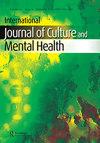比较和对比两种不同的本体论观点,它们可能适用于心理学的定性研究评估对认识论的影响和数据收集方法的选择在研究异性恋男性(MSM)时
Q1 Social Sciences
International Journal of Culture and Mental Health
Pub Date : 2018-04-03
DOI:10.1080/17542863.2017.1343860
引用次数: 1
摘要
当开始一项研究时,重要的是决定研究人员站在哪个本体论基础上。他们是用绝对的观点来看待世界,从而拥有一种实证主义的观点,还是像建构主义者一样,相信通过心灵的建构来观察。因为它是从本体论的立场出发,告知认识论,也就是说,经验主义者相信知识可以通过感官获得,因此会采取实验方法。因此,如何接近研究和解释知识的认识论立场是关键,当这一点确定后,研究人员将知道使用哪种数据收集方法;对于遵循和坚持一个合乎逻辑和正确的过程是必不可少的,以便对MSM进行研究,并经得起严格的同行评审[Ritchie, J., Lewis, J., Nicholls, C. M., & Ormston, R.(2014)]。质性研究实践:社会科学学生和研究人员指南。伦敦:圣人]。选择定性的人际现象学分析(qualitative Interpersonal Phenomenological Analysis,简称MSM)来调查偶尔与男性发生性行为的直男(MSM),既符合研究者的认识论立场,也旨在了解MSM人群的想法、价值观和信仰,以遏制HIV在直女中的传播。本文章由计算机程序翻译,如有差异,请以英文原文为准。
Compare and contrast two different ontological perspectives that might apply to qualitative research in psychology evaluating the impact on epistemology and choice of data collection method in studying straight men who sleep with men (MSM)
ABSTRACT When embarking on a piece of research it is important to decide on which ontological basis the researcher stands. Do they see the world in absolute terms thereby having a positivist view or do they believe in observing through the constructions of the mind like the constructionists. Because it is from the ontological position that informs the epistemology, i.e. the empiricist who believes that knowledge can be gained via the senses would therefore take on an experimental methodology. Therefore the epistemological stance of how to approach the study and interpret knowledge is key and when this is decided, then the researcher will know which method of data collection to use; is essential for a logical and correct process to be followed and adhered to in order for research into MSM and to stand up to the rigour of peer review [Ritchie, J., Lewis, J., Nicholls, C. M., & Ormston, R. (2014). Qualitative research practice: A guide for social science students and researchers. London: Sage]. Qualitatively Interpersonal Phenomenological Analysis is chosen for investigating the straight men who have sex occasionally with men (MSM) as it fits with the epistemology stance of the researcher and with the focus on trying to obtain ideas, values and beliefs of the MSM population in order to curb the spread of HIV among straight women.
求助全文
通过发布文献求助,成功后即可免费获取论文全文。
去求助
来源期刊

International Journal of Culture and Mental Health
Social Sciences-Cultural Studies
CiteScore
2.10
自引率
0.00%
发文量
0
期刊介绍:
This title has ceased (2018). This important peer-review journal provides an innovative forum, both international and multidisciplinary, for addressing cross-cultural issues and mental health. Culture as it comes to bear on mental health is a rapidly expanding area of inquiry and research within psychiatry and psychology, and other related fields such as social work, with important implications for practice in the global context. The journal is an essential resource for health care professionals working in the field of cross-cultural mental health.Readership includes psychiatrists, psychologists, medical anthropologists, medical sociologists, psychiatric nurses and social workers, general practitioners and other mental health professionals interested in the area. The International Journal of Culture and Mental Health publishes original empirical research, review papers and theoretical articles in the fields of cross-cultural psychiatry and psychology. Contributions from the fields of medical anthropology and medical sociology are particularly welcome. A continuing dialogue between members of various disciplines in various fields is encouraged. The aim of the journal is to encourage its readers to think about various issues which have clouded cross-cultural development of ideas. The journal lays special emphasis on developing further links between medical anthropology, medical sociology, clinical psychiatry and psychology, and implications of the findings on service provisions. The journal is published four times a year. The style of reference is Harvard. All research articles in this journal, including those in special issues, special sections or supplements, have undergone rigorous peer review, based on initial editor screening and anonymized refereeing by at least two independent referees.
 求助内容:
求助内容: 应助结果提醒方式:
应助结果提醒方式:


